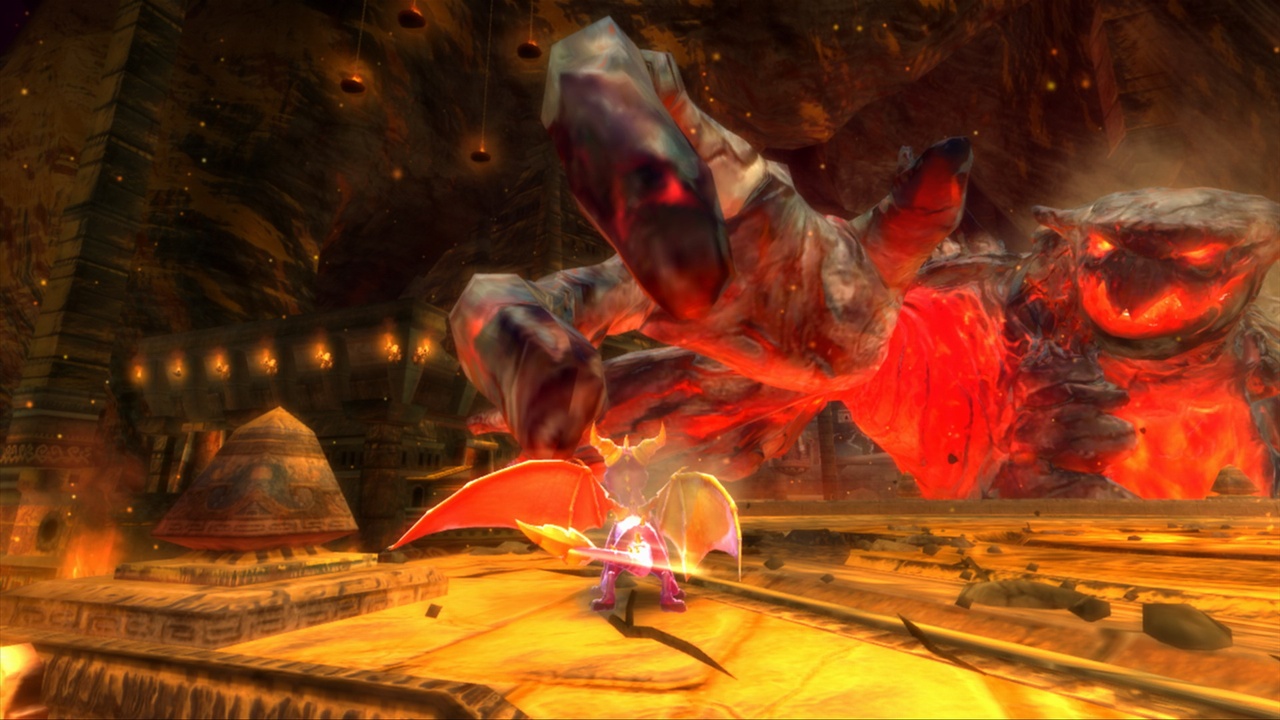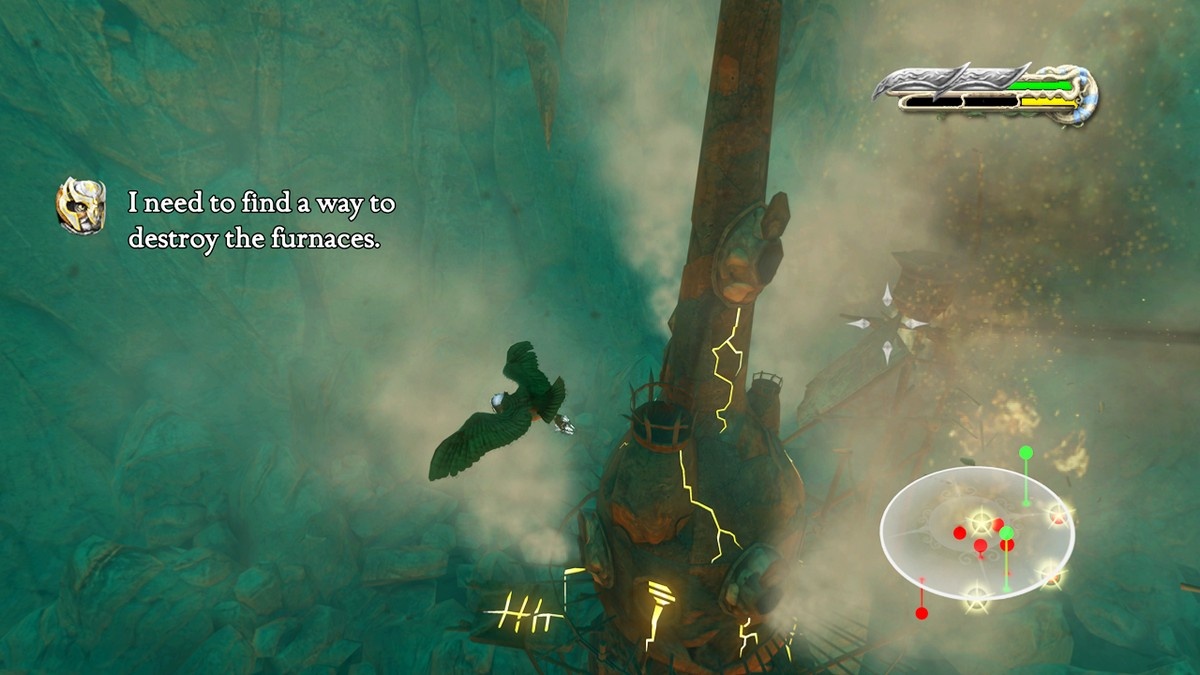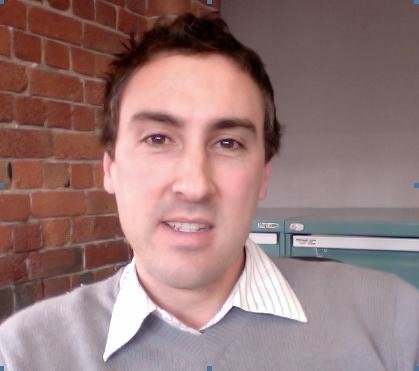New president for Aussie developer group
Game Developers Association of Australia anoints new leader; former head Tom Crago to continue role as Tantalus game studio CEO.
After three and a half years as president of local industry group the Game Developers Association of Australia (GDAA), Tom Crago has stepped down from the role to pave the way for new leadership blood.
The announcement was made official today at the GDAA annual general meeting. The GDAA is the Australian game industry body that represents local video game development studios and talent. Replacing Crago as GDAA president will be Tony Lawrence, the general manager of 2K Australia in Canberra. It was also revealed that a new committee will be set up to identify new goals for the association in the coming year; this will be made up of local industry members, whose names will be announced next week on the GDAA Web site.
GameSpot AU tracked down outgoing president Tom Crago to discuss his reasons for stepping down and his plans for the future in his ongoing role as the head of one of Australia's most successful development studios, Tantalus.
GameSpot AU: This is a big decision. Why are you stepping down now?
Tom Crago: Three and a half years is a long time, certainly longer than I anticipated when I took the job back in 2007. My stepping down is a part of a process that commenced when I asked Tony Reed to come on as our CEO last year. I've felt for some time that there was a need to refresh our leadership and to bring some new blood into the association. It's the right time to do that.
GS AU: What factors convinced you that this was the right time to go?
TC: I've always enjoyed the role, even through the challenging times. But ultimately, industry associations work best when the leadership is shared. Two years feels like the right amount of time for a president to serve, so on that basis maybe I stayed a year and a half too long…
GS AU: How do you think the new president will fare in the role?
TC: Tony Lawrence came into the role with my endorsement, and I'm delighted that he was willing to accept the challenge. He was elected unopposed, and I think it's a sign of the strength and unity of the industry that we've been able to manage this transition in such an orderly way. Tony is extremely capable, very experienced, and I have no doubt he'll be a great success in the role. You'll be hearing a lot more from him in the coming weeks and months.
GS AU: How will the focus and goals of the organisation change with this new step in leadership?
TC: Our reinvigoration started with Tony Reed's appointment, and from a leadership standpoint is completed by the appointment of Tony Lawrence and the new committee. The committee itself is an incredibly talented mix of our local industry's best and brightest. This group will revisit our strategic plan and look to set new goals. However, the fundamental function of the GDAA will remain the same. We'll still seek to promote the local industry both here and overseas, and continue to ask the Australian government for a better deal for local developers.
GS AU: How important is it to have an organisation like the GDAA in Australia?
TC: I think it's vital. I've always believed that a strong, unified association with a powerful voice both locally and internationally is the only way forward for the Australian games industry. We're small and we're on the other side of the world, which makes it hard to be heard. We're also tiny in comparison to other industries here in Australia. As individual companies, our voices quickly become fragmented, but as an association we're able to speak as a collective and exert far more influence. Most importantly, the GDAA provides a mechanism for local companies to help and support one another. We're still a pretty tight-knit community, and that is a real strength.
GS AU: Run us through some of the proudest moments and biggest achievements in your time as GDAA president.
TC: You know, I think back and I just find myself wishing I could have done more. A lot of energy was invested simply in keeping the train on the tracks. I suppose the fact that the GDAA has been able to survive these past few years and become recognised as the voice for the local industry is something I can be proud of. We finally have a seat at the table in federal government discussions, and with GCAP we have a conference that continues to grow in stature. We have also managed to maintain a strong international presence at trade shows, with a particular focus on bridging the divide between global publishers and our smaller local developers. It has been satisfying to see a number of these introductions lead to deals. I also know that what I'm handing over is in better shape than what I inherited, so that maybe counts for something.

GS AU: This is a very important election year. In your opinion, what are the vital things that the local video game development industry needs from the Australian government right now?
TC: Our message to the federal government has been the same now for some time: recognise that video games are an important part of screen culture in Australia, and allow the games industry to access the same grants and incentives that are available to the film and television industries. While we now have a better relationship than ever with the government, we have not seen real progress on this most fundamental of issues. There is no doubt that government could throw a major lifeline to the local industry, and with the tough state of the market at present, that lifeline would be very welcome.
GS AU: Do you think we will see a positive change for game development and classification with a change of government, if this does happen?
TC: None of the major parties have openly supported our call for tax rebates and incentives for the games industry. We made some solid progress with the current government on the research and development taxation legislation, but sadly that Act did not make it through the House of Representatives in June. We hope it will be revisited when Parliament eventually returns. The only political party to actively support our position on the tax offset was the Australian Greens, just before the 2007 election. We maintain a dialogue with all the parties, and we hope that in time they will realise what a valuable industry we have in Australia and that it is worth getting behind.
GS AU: What is the future of the video game development industry in Australia? Where do you see it headed?
TC: I think we're all pretty conscious of the fact that the games industry is extremely volatile, especially so far away from the action here in Australia. We really have been tossed around in rough seas these past couple of years and a lot of companies haven't survived. Our problem, for the most part, is that we're too heavily reliant on foreign publishers to fund our projects. It is possible to make a success out of the fee-for-service business, but we need to extend our reach. Really, we need some form of funding ecosystem here in Australia. Part of that must come from government, but as an industry we also need to do a better job of formulating a value proposition for the investment community. Overall, the games business is very profitable, and we make great games in Australia. We need to link that chain with Australian investors who want to back Australian developers.
GS AU: Will things get better or worse from here on in for the Aussie game industry?
TC: They're going to get better. We've had a rough run, but those companies who have come out at the other end are tougher, leaner, and better equipped for success. We've had some wins in the mobile space, and that market looms as one of the great growth areas for local developers. Inevitably, we'll see a shift into social gaming too. And let's not forget we have some world-class foreign-owned studios here in Australia, working on huge intellectual properties. From THQ and 2K through to Sega and EA, we have some of the industry's biggest names, and we hope these companies will increase their investment in Australia. The real story though will be the startups. I'm extremely confident that the current crop of new, small game developers will produce a handful of success stories and that this in turn will give rise to the next wave of growth.

GS AU: What would you like to say to young video game development startups that are having doubts about developing games in Australia?
TC: There is absolutely no reason why you can't make world-class games here in Australia. Our educational institutions produce first-rate graduates, and the game development community at large is helpful and inclusive. If you live in Victoria or Queensland, there are local government programs that can assist you, and no matter where you live you can access the expertise and resources of the GDAA. There is no doubt that it is harder to run a successful games business here than in some other parts of the world, but we have to remember that Australia is a very desirable place to live. From my perspective, that's a huge draw card. At the end of the day, this is a tough business, and you need real talent to make a success of it. And of course you need to persevere. It can take years of hard slog, but if you back yourself and surround yourself with the right people, your chances of winning are greatly improved.
GS AU: What are your plans for Tantalus going forward?
TC: I'm still the CEO and owner of Tantalus. That's always been my job, and it will be business as usual for us going forward. We have just announced Megamind with THQ (for DS and PSP) and Legend of the Guardians: The Owls of Ga'Hoole with Warner Bros (for DS), both of which will ship later this year. We're also working on new projects for the Nintendo Wii, and we're ramping up for the 3DS.
GS AU: Any parting thoughts?
TC: It really has been an honour to work so closely with this terrific industry over these past few years. I wish I could have done more, but ultimately I know I'm handing over the reins to a strong new leadership team that share my vision for game development in Australia. It will be nice for me to be able to spend some more time focusing on running Tantalus, and to enjoy becoming a father, an event that is due to happen any day now...
GS AU: Thank you, Tom, and congratulations on the baby news! We wish you the best of luck going forward.
Got a news tip or want to contact us directly? Email news@gamespot.com

Join the conversation